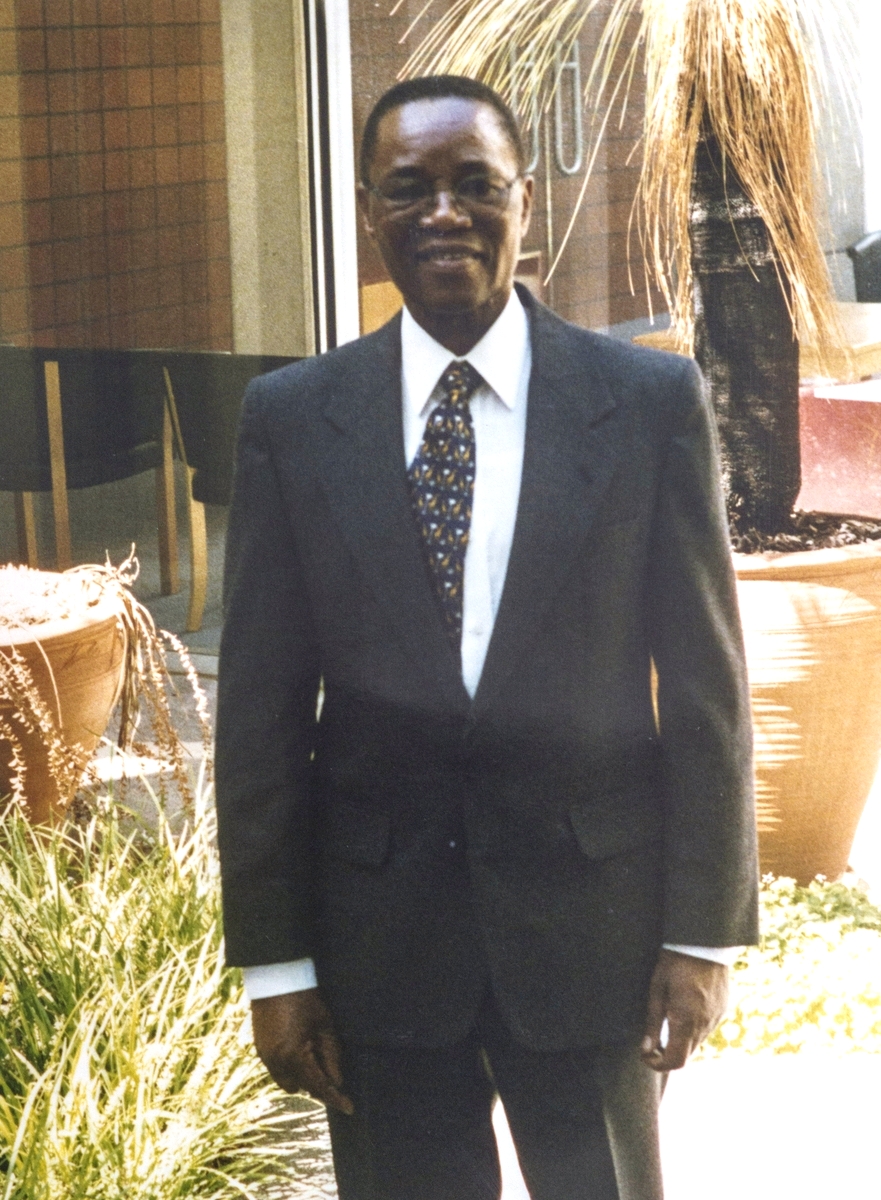Canberra Citizen of the Year
1998
Killion Reuben Banda (died circa 2010)

SOURCE: ACT Government
Killion was born in Northern Rhodesia, a former British protectorate that became Zambia in 1964. He graduated with a Bachelor of Arts in Education from the University of Zambia in Lusaka, and also studied in London, achieving a Master of Arts and an Advanced Academic Diploma in Education from the London University College Institute of Education.
In Zambia, Killion worked first as a teacher, rising to be vice-principal of a senior secondary school and then Chief Education Officer in the Department of Education and Culture. He also worked in London and Moscow as an education attaché, presumably at the Zambian embassies there.
Killion moved into the related area of training, attending Train the Trainer courses in Zambia, Dublin and Canberra. He also attended human resources workshops organised by the Commonwealth Secretariat in London and the Canadian Agency for International Development in Toronto.
In this role he was assigned, in partnership with the Institute of Public Administration (IPA) in Dublin, the task of developing a supervisory management course for middle level managers, and conducted workshops in management development for senior public servants in the Zambia Public Service. He was Principal of the National Institute of Public Administration, a peak national training institute in Zambia, before being appointed Director of Manpower Development and Training within the Cabinet Office of the Office of the Prime Minister.
Also in Lusaka he was Project Officer and Head of Mission for what is now the International Organisation for Migration. The IOM began in 1951 as PICMME, the Provisional Intergovernmental Committee for the Movement of Migrants from Europe, becoming in turn the Intergovernmental Committee for European Migration (ICEM) in 1952, the Intergovernmental Committee for Migration (ICM) in 1980 and the IOM in 1989. It is now the leading international agency working with governments and civil society to advance the understanding of migration issues, encourage social and economic development through migration, and uphold the human dignity and well-being of migrants.
Before leaving Zambia for Australia, Killion worked as Deputy Permanent Secretary and acting Permanent Secretary in the Ministry of Mines and Mineral Development.
On arrival in Canberra in 1992 Killion more or less repeated the main steps in his career, beginning as a relief teacher with both the ACT Department of Education and Training and the Catholic Education Office. In April 1993 he was appointed Chief Project Officer (Employment Liaison and Training) at the Migrant Resource Centre (MRC). He was made Co-ordinator of the MRC in April 2000.
During his first two years with the MRC Killion established it as an important link between new migrants and the regular workforce. In an item in Multiculture in August 1993, he wrote: “The Migrant Resource Centre in Canberra has expanded its services following the establishment of a Community Project / Employment Liaison Officer (CP/ELO). This service offers free advice to newly arrived immigrants in the areas of: job search techniques; job applications; preparation of resumes; selection criteria; and job interviews. It complements the services currently offered by employment and training organisations in government, community and private institutions.”
In addition, in collaboration with the Metropolitan Business College he ran a program for women from non-English speaking backgrounds (NESB) to learn word processing and office procedures, enabling them to achieve a Certificate in Computer Business Applications. As a result, the MRC’s referrals comprised the majority intake in the 1994/1995 Women’s Workforce Development Scheme.
Following these successful initiatives, other courses for NESB professionals were set up between the MRC and professional organisations, training institutions and the relevant government departments.
Training was essential, but Killion saw this was often not enough to place the trained workers, so he established a Job Centre with a database of migrant job-seekers, secured accreditation as a provider of special case management, and applied to the ACT Vocational Training Authority for registration of the MRC as a training provider so that it could offer nationally accredited short courses.
All work and no play was contrary to Killion’s ideas of helping migrants to settle in, so he formed social sporting groups, with coaching for those who needed it, for job seekers. Starting with tennis, other sports and activities, including an annual concert, were added as requested.
In January 1999 Killion coordinated Forum 99 which met to discuss the effect of the federal government’s proposals for mandatory literacy and numeracy standards on migrants.
Having been awarded Canberra Citizen of the Year in 1998, Killion was again recognised for his contribution to multiculturalism by being selected in 2001 for Peoplescape. This was a community art project to commemorate the Centenary of Federation, with 5000 life-size artistic tributes to Australian men and women installed on Federation Mall, the sweep of lawn below Parliament House, in November.
At a 2003 meeting with the ACT government, requesting permanent funding for the English for living and home tutor programs, committee members were invited to visit the classes and see for themselves. The response from the chairman and others was: “If members haven’t been there, I strongly suggest that you do and enjoy Killion’s hospitality … he has a great way of sending you home with a nicely wrapped bucket of guilt. He’s very good at it. … [the program] is a real-time attack on social isolation … there is no other service in Canberra that provides [this].”
In May 2004 Killion represented the ACT Migrant Resource Centre on the Joint Community Government Reference Group that prepared the Social Compact, a statement of understanding about the relationship between the ACT Government and the community sector that complemented the Canberra Social Plan and the Community Sector Funding Policy.
Killion retired on 1 November 2004, having delayed his departure until the new Coordinator could take up the position. He is believed to have died overseas in 2010.
Awards and Distinctions
1998 Canberra Citizen of the Year

